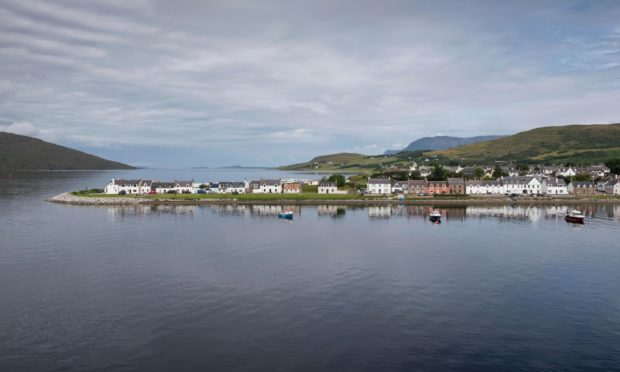A licensing system for short-term holiday property lets has been opened for public consultation after the SNP Government promised to revise its guidance for the troubled sector.
The growth of Airbnb-style rentals in rural and island communities, as well as city tourism hotspots, led to plans which were supposed to be law before the Holyrood election.
But the plans led to competing concerns among some self-catering owners and “traditional” hospitality providers, including hotels.
The Scottish Government withdrew the proposals which have now been revived for a consultation which runs until August 13.
Under the proposed legislation, councils will have until October 1, 2022 to establish a licensing scheme, with all short-term lets to be licensed by April 1, 2024.
Existing hosts and operators must apply for a licence by April 1, 2023.
Airbnb said the plan is “too complex” while Conservatives accused the SNP of sneaking out unworkable plans while Holyrood is in summer recess.
‘Depopulation crisis’
However, Leon Thompson, of industry group UK Hospitality Scotland, backed the plan and said: “This is the third consultation on the introduction of licensing for this area, and the need for this scheme only continues to grow. The Scottish Government must stick with its publicly stated commitment to deliver a robust licensing scheme and as soon as parliament returns after the summer recess.
“Furthermore, Scotland is facing a depopulation crisis in almost all rural areas, and the proliferation of short-term lets is reducing housing stock and driving up house prices and rents. This is having a knock-on effect on hospitality businesses that need to recruit and house workers and many of our rural members say housing shortages are contributing to the staffing issues they face.
“It cannot be right that businesses that provide jobs and contribute to sustainable and thriving communities are undermined by the lack of action in this area.”
‘Too complex, costly and bureaucratic’
The government earlier snubbed an attempt by the Association of Scotland’s Self-Caterers to push for a registration system, which they hoped would be cheaper and easier.
Spokeswoman Fiona Robertson said: “We are extremely concerned that the Scottish Government’s plans to introduce short-term let licensing will materially damage the position of the Scottish tourism sector.”
A spokesman for Airbnb said they share those concerns.
“That is why the tourism industry has put forward clearer proposals that will achieve the same goals while supporting local families and helping accelerate Scotland’s economic recovery,” the spokesman added.
“We remain committed to working with the Scottish Government through its consultation to ensure we get this right.”
Regulation of short-term lets is vital if we are to balance the needs and concerns of our communities with wider economic and tourism interests.
– Scottish Government minister Shona Robison.
Scottish Tory tourism spokesman Jamie Halcro Johnston, who is a Highlands and Islands MSP, said tourism businesses are only just starting to recover from being devastated by the pandemic.
“The last thing they needed is SNP ministers bringing back their proposals to further regulate the industry,” he claimed.
“Small business owners are the lifeblood of our economy across Scotland. SNP ministers should be supporting them rather than adding more red tape to their operations.”
Opening the new consultation, SNP Government minister Shona Robison said regulation of short-term lets is vital to balance the needs of communities with wider economic and tourism interests.
“Short-term lets can offer people a flexible and cheaper travel option and have contributed positively to our tourism industry and local economies across the country,” she said.
“However, we know that in certain areas, particularly tourist hotspots, high numbers of short-term lets can cause problems for neighbours and make it harder for people to find homes to live in.
“By allowing local authorities appropriate regulatory powers through a licensing scheme, we can ensure that short-term lets are safe and address issues faced by local residents and communities.
“It will allow local authorities to understand more fully what is happening in their areas and assist with the effective handling of complaints.”
She said the Government wants to get the legislation “absolutely right” and a stakeholder working group had been set up earlier this year.
